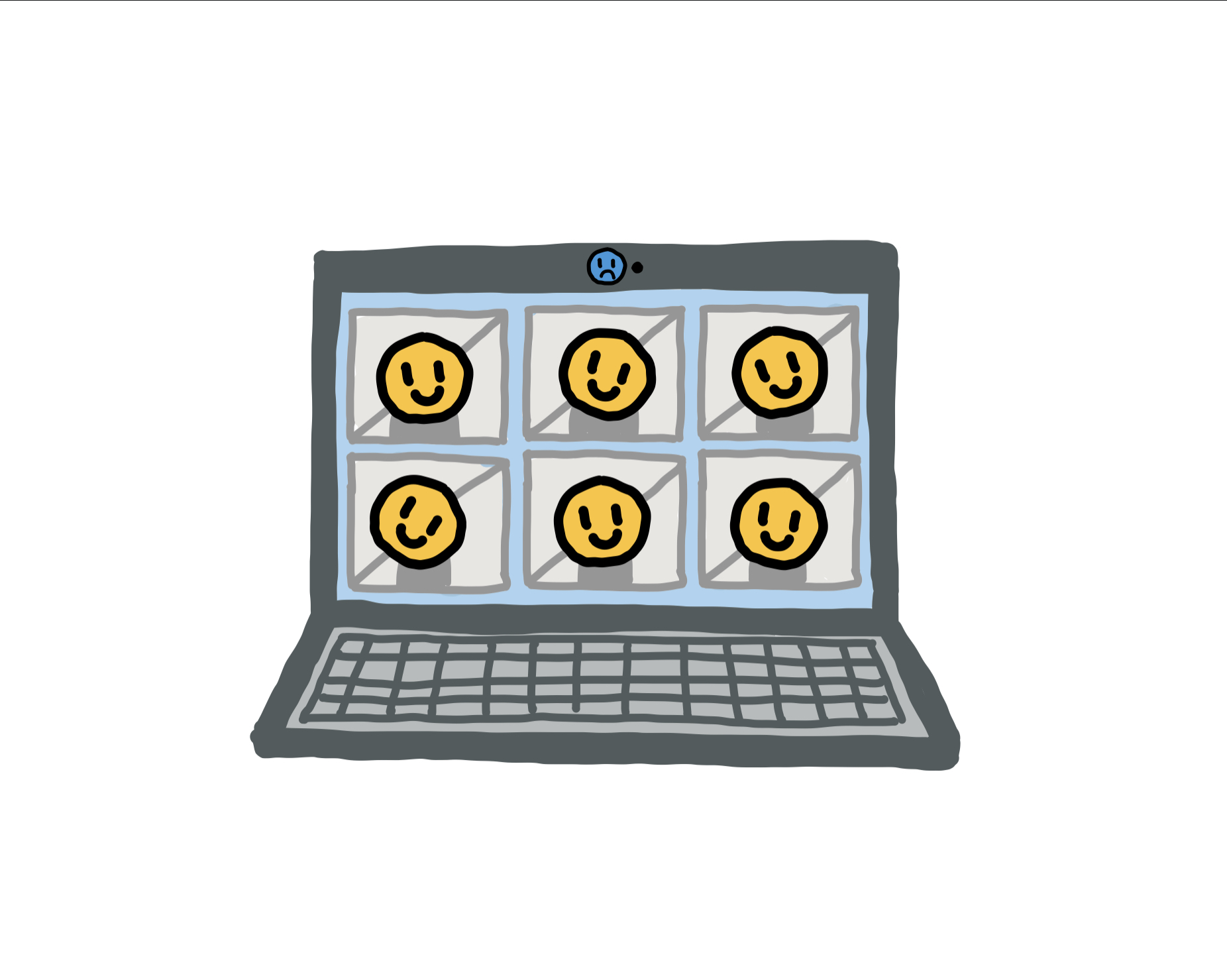We are not okay.
February 19, 2021
 This
piece represents the opinion of the author
.
This
piece represents the opinion of the author
.
 Nora Sullivan Horner
Nora Sullivan Horner[Content warning: Eating disorders.]
I am not okay.
I’m 20 years old—I’m supposedly in my prime. And I can barely leave my room. I combat crippling social anxiety when I try to preserve my sanity through socialization. I choose sleep over school because I don’t have the energy to do anything else. I take two antidepressants every day. I speak with a therapist every week. I obsessively write positive affirmations on post-it notes. I fight the urge to barf every time I eat. I tell myself that life is worth living, even one that feels like hell. At any given moment, I am stressed, sad, scared, sleepy or starving. Sometimes I am all of those at once.
Clearly, I am not okay. And it’s alright if you aren’t either.
College students were already at risk for mental health issues before the chaos of 2020. When COVID-19 upended traditional college life, these risks drastically increased. According to the CDC, three out of four Americans aged 18 to 24 have reported poor mental health due to the pandemic, and one in four have seriously contemplated suicide.
Think about that for a second. At Bowdoin, a college of 2000 students, at least 1500 are currently struggling with their mental health, and 500 have seriously contemplated suicide. Chances are if you’re doing okay, at least some of your friends aren’t.
Experts warn that the mental health toll on teens and 20-year-olds is equivalent to a second pandemic and should be taken just as seriously. Almost two thirds of college students have reported a significant worry about their own mental health. Many students have developed problematic eating habits, and many students with previously treated eating disorders have relapsed. Our age group bears the least risk of experiencing severe COVID-19 symptoms but the greatest risk of experiencing severe mental distress because of the pandemic. Things are so bad for college students that many mental health professionals recommend that struggling students break COVID-19 restrictions to cope.
But I’m not here to tell you to do that—at least not if you’re on campus because, personally, I don’t want to go back to living with my parents. I do, however, think there are more reasonable actions everyone at Bowdoin can take to make this troubled time a little more bearable.
Students: speak up about your mental health. You won’t be able to get any sort of help unless you talk about the fact that you’re struggling. Check in with your friends; they’re likely struggling just as much as you are. Tell your professors that your mental health is a valid excuse for needing some slack in class. You can’t be academically successful when your wellbeing is threatened by bad mental health. Go to counseling services if that’s your thing. Maybe call or text a hotline, or just open your window and scream into the void. But please make it known that you are in pain and need help!
Professors: cut students some slack. I’m sure this isn’t the easiest time for you, either. Practice empathy and know that everyone is doing the best they can in the given situation. For some, that may look like missed deadlines or a lower quality of work—and that’s okay. Students’ mental health should always come before any assignment!
Deans and other upper-level administrators: work to address Bowdoin’s mental health crisis from the top down. Add staff to counseling services so more students can easily and regularly access therapists and psychiatrists. Consider making large-scale changes to Bowdoin’s academic culture to reduce the burden on students. I like universal pass/fail, but I know that’s controversial, so start by eliminating plusses and minuses on grades. Create opportunities for students to socialize in-person, no matter what status level campus is in. To truly maximize student success, mental health must come first!
And everyone: check in on those around you!
Like the COVID-19 pandemic, everyone can protect those who are vulnerable in this mental health pandemic. And while there is no magic cure that will solve either one, there are steps we can take to prioritize both our physical and mental wellbeing—we just have to take them. Take it from an anxious, depressed, borderline-anorexic college student who is definitely not okay.
Lyle Altschul is a member of the Class of 2023.
Comments
Before submitting a comment, please review our comment policy. Some key points from the policy:
- No hate speech, profanity, disrespectful or threatening comments.
- No personal attacks on reporters.
- Comments must be under 200 words.
- You are strongly encouraged to use a real name or identifier ("Class of '92").
- Any comments made with an email address that does not belong to you will get removed.

?? preach